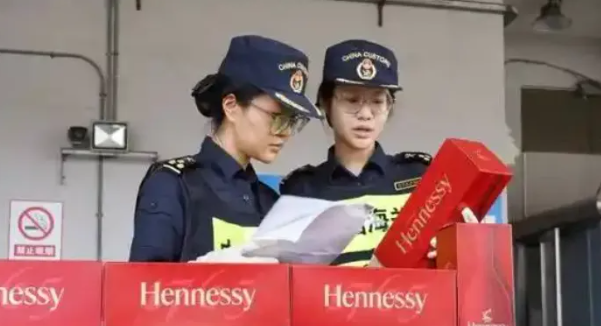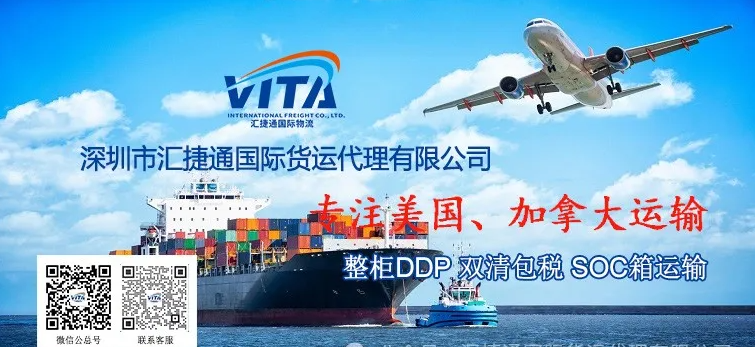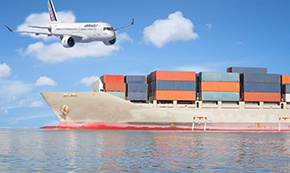All categories >
Essential Reading for Foreign Trade Companies: Circumstances of Customs Detention of Goods and Response Strategies
Categories:
Solution
Solution
News Center
Industry Encyclopedia
News
Time of issue:
2025-03-26 17:10
Views:
My goods have been detained by customs. What should I do?
In international trade, customs inspection and detention of goods are among the most undesirable situations for foreign trade enterprises. Once goods are detained, it will not only affect the delivery time but may also lead to economic losses. So, under what circumstances will customs detain goods? How should foreign trade enterprises deal with it? This article will provide you with a detailed explanation.

I. Common situations where customs detains goods
1. Incomplete customs clearance procedures
Customs clearance documents have not been prepared in strict accordance with customs requirements, and necessary customs clearance documents, certificates, or certification materials are missing. For example, invoices, packing lists, certificates of origin, etc. are missing.
2. Suspected smuggling
The origin of the goods is unclear or the declaration is untrue, and there are acts of evading customs supervision and tax evasion; or importing and exporting prohibited goods without permission, such as contraband and restricted goods.
3. Violation of customs supervision regulations
Goods under customs supervision have been disposed of without customs permission or without following the prescribed procedures. For example, unauthorized transfer, sale, or use of bonded goods.
4. Infringement of intellectual property rights
Importing and exporting goods that infringe on intellectual property rights, such as counterfeit and shoddy products and pirated goods. Such acts will not only lead to the detention of goods but may also face legal proceedings.
5. Other violations
For example, refusing customs inspection or providing false information may lead to customs detention.
II. How should foreign trade enterprises properly respond?
1. Understand the reasons for detention in a timely manner
After the goods are detained, contact the freight forwarder or customs broker immediately to understand the specific reasons and obtain relevant notices or documents from customs.
2. Seek professional legal advice
If there are complex legal issues involved, it is recommended to seek the help of a professional legal counsel or customs lawyer to ensure that the company's legitimate rights and interests are protected.
3. Supplement documents or certificates
According to customs requirements, prepare and submit missing documents or certificates as soon as possible. For example, supplementary certificates of origin, test reports, letters of authorization, etc.
4. Check the compliance of goods
Check whether there are other situations that do not meet the standards or violate local laws and regulations, and ensure that the goods meet the supervision requirements of the destination country.
III. How to prevent goods from being detained?
1. Strengthen internal compliance management
Establish and improve internal management systems and enhance employees' legal awareness and professional skills. In particular, import and export documents (such as contracts, invoices, customs declarations, etc.) should be properly kept for inspection.
2. Familiarize yourself with the customs policies of the destination country
Before importing and exporting goods, fully understand the customs supervision policies and requirements of the destination country to avoid problems caused by information asymmetry.
3. Choose a reliable freight forwarder partner
Cooperate with experienced and reputable freight forwarders to ensure the compliance and safety of customs declaration and transportation.

4. Enhance risk prevention awareness
Regularly conduct compliance training, pay attention to changes in international trade policies, and prepare risk contingency plans in advance.
Customs detention of goods is a major challenge facing foreign trade enterprises, but by strengthening compliance management and enhancing risk prevention awareness, enterprises can effectively reduce risks. Once goods are detained, it is necessary to communicate promptly, respond actively, and strive to resolve the problem as soon as possible to minimize losses.
Sound operation is the cornerstone of the long-term development of foreign trade enterprises. Only by complying with regulations and paying attention to details can we achieve steady and far-reaching development in international trade. I hope this article can help your business, and wish your goods a smooth journey!
Have you encountered customs inspection or detention of goods in your import and export business? Welcome to share your experience and suggestions in the comments section!

Follow us
Get more foreign trade dry goods and industry information to help you ride the waves in international trade!
Keywords:
Customs seized goods










